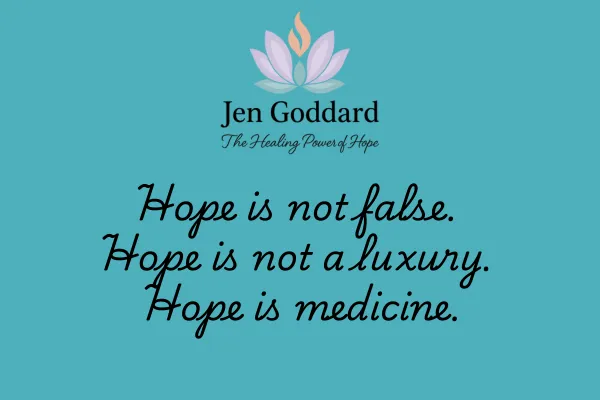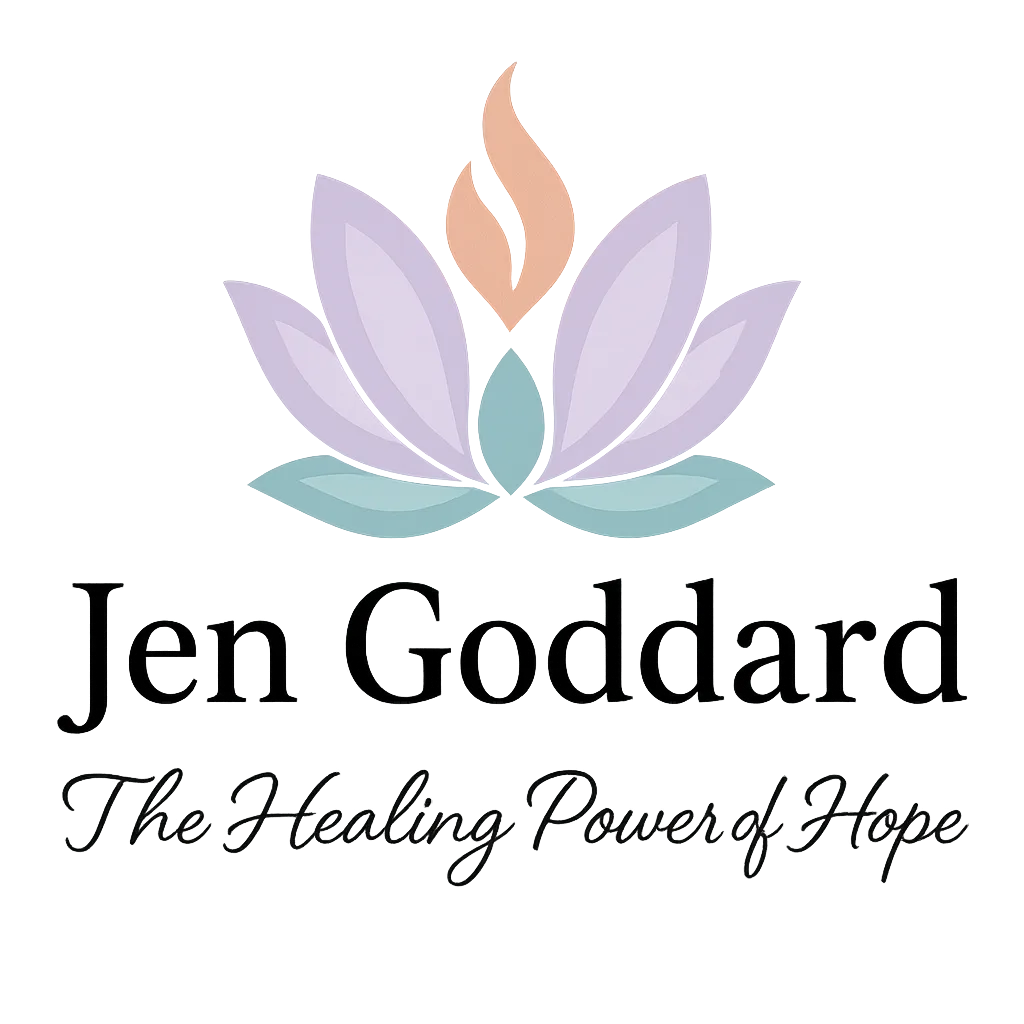Our Latest Articles

The Healing Power of Hope
Hope is not a luxury.
Hope is medicine.

It’s been about a year since I was first diagnosed with Stage 2 metaplastic, triple negative breast cancer. The news was devastating and the prognosis poor. The first study I read about it said this cancer had a zero five-year survival rate. Literally all the study participants had died within two years.
Zero five-year survival rate.
My doctors were almost universally grim. I believe they wanted to impress on me the seriousness of this diagnosis, and perhaps prepare me for the difficulty of the fight ahead.
Chemotherapy would be of the most aggressive type. It would make me sick. It would rob me of my strength. It might cause other cancers.
My oncologist offered singular hope.
She said she would follow a brand new treatment protocol, only recently approved, that she had literally learned about at a conference earlier in the year.
I immediately ignored all of the grim news and latched onto her simple statement, when she said,
“I can cure this.”
She had thrown me a lifeline … and that lifeline was HOPE.
I dared to hope … to believe … that I would not die from this cancer.
I dared to pray. Daily I asked God for complete healing.
I dared to speak to my body. I told the cancer it was not welcome here, that my body is the temple of my God and it will be healthy and strong enough to defeat cancer.
What Role Did HOPE Play in My Healing?
How much did that HOPE affect my outcome?
I recently met with the medical director at City of Hope Cancer Center in Phoenix, one of the top five cancer centers in the country. He was so excited to review my case and see the Complete Pathologic Response result … which means my cancer was completely eradicated and there is no sign of cancer remaining in my body.
We visited for more than an hour – he asked me a lot of questions and I guess I asked him even more.
As we wrapped up and were saying our goodbyes, he told me,
“I can’t wait for the car ride home with my wife tonight (who is the breast cancer specialist) and tell her about this amazing woman I met today who just beat metaplastic, triple negative breast cancer.”
But This Is Bigger Than Just My Story
There is real science behind the healing power of hope.
Here is what we know about the power of HOPE to heal cancer, to slow its progression, prevent recurrence and improve survivability
Psychoneuroimmunology is the study of how thoughts and feelings cause neurologic responses that impact our immune system.
Feelings of hopelessness cause our bodies to release stress hormones that both trigger the inflammation cancer requires to grow and spread, and shut down other systems like digestion, tissue repair, and the immune system.
Study after study confirm that feelings of hopelessness profoundly affect the immune system. The white blood cells responsible for fighting off diseases are particularly sensitive to these feelings of hopelessness. When people feel that there is nothing to be done to overcome their disease and they give up, these white blood cells, our natural killer cells, become less active. It’s almost as if they lay down as well.
One study, conducted by Dr. Robert Herberman of the National Cancer Institute showed clear correlations between positive thoughts and feelings, a highly active immune system, and long-term survival from breast cancer. In this study, the women who maintained positive thoughts and feelings had much more active natural killer (immune system) cells than those who fell into depression and hopelessness.
This highly active immune system proved particularly important in the weeks following breast cancer surgery. The more active the immune system in these initial weeks, the more likely the patient’s long-term survival.
Bottom line: the women who were able to maintain positive, hopeful thoughts and feelings had more active immune systems and their healthy immune response immediately following surgery had a statistically significant impact on their ability to fight cancer and live longer.
Why We Must Talk About Hope
It’s worthwhile for us to nurture our own mindset, especially as it relates to hopefulness through a cancer diagnosis and as survivors. We also should surround ourselves, as much as possible, with the people who can help support our hopefulness.
Though she had initially thrown me that lifeline of HOPE, throughout my cancer treatment my oncologist repeatedly said she did not want to give me “false hope,” and consistently tried to keep my hopes in check..
When the tumor stopped growing, I was excited. She was skeptical. I was told about a “lacing” effect that makes it appear as though the tumor is shrinking, but it is only becoming less dense … with holes like lace or swiss cheese.
When we couldn’t even find the tumor anymore, she said, “I don’t want to get your hopes up.”
In the face of the evidence that we were winning the battle … it was as if my very HOPE could sabotage the outcome.
We need to get the message out to cancer patients, their families and friends, caregivers and especially physicians that HOPE is a powerful healer, a tremendous ally in the battle against even the most fearsome of cancers.
Once you choose HOPE, anything is possible.

